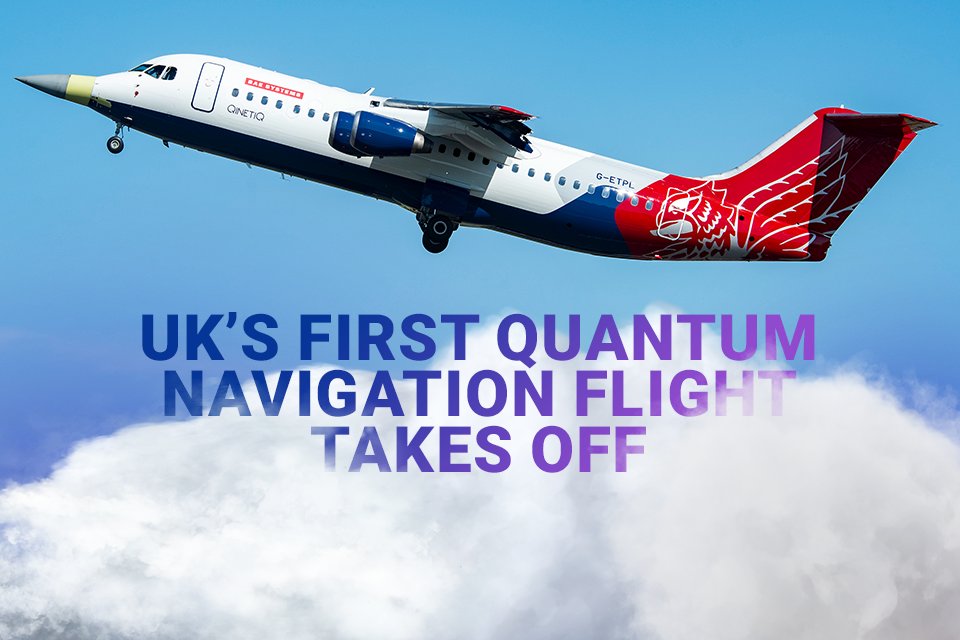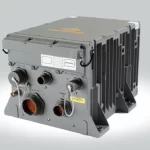The UK has successfully tested quantum-based navigation systems in flight. This commercial trial, led by the quantum technology firm Infleqtion, aims to enhance resilience against GPS jamming and spoofing.
Improving Navigation Security
Although GPS jamming typically does not affect an aircraft’s flight path, Quantum-based Positioning, Navigation, and Timing (PNT) systems aim to provide accurate and resilient navigation, complementing existing satellite systems, and ensuring uninterrupted operations for global air traffic.
Collaborative Effort and Government Support
Infleqtion, in collaboration with aerospace companies BAE Systems and QinetiQ, conducted the trials at MoD Boscombe Down in Wiltshire. Science Minister Andrew Griffith participated in the final test flight on May 9. The project has received nearly £8 million in government funding as part of the National Quantum Strategy, which seeks to establish the UK as a leader in quantum technology.
Science Minister Andrew Griffith stated, “From passenger flights to shipping, we all depend on navigation systems that are accurate, safe, and secure. The scientific research we are supporting here on quantum technology could well provide the resilience to protect our interests. The fact that this technology has flown for the first time in British skies is further proof of the UK as one of the world leaders on quantum.”
Quantum Technologies in Flight
The test flights showcased two key quantum technologies: the compact Tiqker optical atomic clock and an ultra-cold-atom-based quantum system, both tested aboard QinetiQ’s RJ100 Airborne Technology Demonstrator. These technologies are part of the development of a Quantum Inertial Navigation System (Q-INS), which aims to provide precise and resilient navigation independent of traditional GPS.
Dr. Timothy Ballance, President of Infleqtion UK, highlighted the importance of these trials: “Our recent trials mark a significant step forward in the development of quantum PNT solutions. The work we have done directly addresses the critical need to reduce our reliance on satellite navigation systems, which are vulnerable to various risks.”
Industry and Academic Collaboration
The project involved extensive collaboration among industry and academic partners, including the Fraunhofer Centre for Applied Photonics, Alter Technology UK, Caledonian Photonics, Redwave Labs, PA Consulting, BAE Systems, and QinetiQ. Supported by UK Research and Innovation (UKRI), these efforts aim to address the UK’s reliance on GNSS/GPS for critical applications.
Henry White, Sensing Technology Lead at BAE Systems, noted the military implications: “These trials are an important step forward in developing quantum technology that could ultimately offer a significant military advantage. Knowing reliably and precisely when and where any asset and sensor system are, feeds into additional options for platform design and capability. This will play a big role in supporting the development of next-generation combat air systems.”
Simon Galt, Managing Director (Air) at QinetiQ, commented on the collaboration: “We’re proud to be partnering with BAE Systems and Infleqtion to enable the successful trial of this cutting-edge technology, demonstrating our ability to rapidly and effectively collaborate across the defence ecosystem, combining our quantum expertise with our Airborne Technology Demonstrator jet.”
Future Prospects
Roger McKinlay, Challenge Director for Quantum Technologies at Innovate UK, part of UKRI, remarked on the trials’ significance: “Modern infrastructure is increasingly dependent on highly accurate timing and navigation derived from satellite signals. These flight tests mark the culmination of two excellent projects, funded through UKRI, which Infleqtion has had the vision to create and the deftness in leadership to execute with an outstanding team of collaborators.”
The successful flight trials are a step towards deploying quantum navigation systems on aircraft by 2030 as part of the UK’s National Quantum Strategy. The demonstrated potential of quantum technology in enhancing navigation security is an important development for future aerospace applications.






